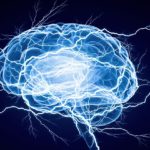No matter what kind of substance a person has developed an addiction problem with, addiction itself remains a cycle of habits that are repeated daily, normally to an addict’s detriment. Often times, as a person falls into heavier and extreme cycles of addiction their day to day life and routine will be increasingly disrupted which will, in turn, lead to new habits being formed in order to facilitate their addiction. As some of these habits can be directly tied to the addiction and the emotions surrounding it, it can be very difficult to break away from them.
However, proper understanding and knowledge of how negative habits form and what to expect when going into recovery can really help an individual to tackle and change these habits for the better. In this article, we will consider a few of the most common habits that are formed through addiction that can be the most difficult to overcome.
1. Financial Habits
Should an individual’s addiction become problematic, their finances will likely be affected. Someone with substance abuse issues in particular often finds themselves spending habits become more focused on fuelling their addiction. However, after being in this situation for a long time, an addict coming out of recovery may feel as though they have “too much money” and can feel as if they have a need to spend his funds on something. This can lead to feelings of confusion and frustration when combined with the urge to start using drugs again.
However, in recovery, it should be explained that they must replace their negative habits with positive ones. Whether that be taking up a hobby, a sport, recreational activities, education or self-betterment exercises. It is important to have a positive outlet for life’s frustrations, worries and (in the case of addicts) to help overcome the urge to use drugs.
2. Social Interaction
While this may sound like a minor habit in the face of a serious problem like addiction, it could be one of the most difficult habits for addicts to come to terms with post-recovery. For a lot of substance abuse patients, the people they associate with, and the urge to start using drugs again come hand in hand. A lot of addict’s first end up using illicit drugs because of friends or associates that also take the substances, either through peer pressure or a desire to fit in. Many may feel as though they are forgetting or somehow letting their friends down by excluding them after rehab when in actuality they are merely excluding them for the sake of their recovery. Combine this with the urge to use drugs again and return to a feeling or normality with their old friends and this can most definitely become a challenge for anybody coming out of recovery.
Again, replacement of negative habits with positive ones is paramount to resisting the temptation to start using drugs again, the same principle applies to people. As the recovering addict becomes occupied with work, education or other activities and hobbies, they can then start to reform his social circle with people who inspire him to do better and can be a positive influence overall.
3. Emotional Habits
Generally speaking, substance abuse affects the emotions and overall psyche of the person, leading them to potentially develop a whole host of psychological problems, from the temporary and not so serious, to the permanent and life-altering. However, many addicts will come to use substances as a way to cope with pre-existing emotions and the drugs themselves are not necessarily the cause of these issues.
However, when a person uses a crutch like drugs to deal with emotional anguish, it can be very difficult to then remove that perceived support mechanism from everyday life.
Seeking the support of other addiction therapists and support groups comprised of addicts can help the recovering addict acknowledge and deal with these feelings appropriately in a way that is beneficial in line with his therapy. It is also very important that the patient has somebody to whom they can be open and honest with their feelings. That person can be a medical professional, support worker, colleague, a friend or a relative; that person can be a sounding board as guidance to readjust to normality within their own headspace. Many therapists and support groups already have mechanisms in place to ensure that participants have this support available to them regularly.
4. Medical Habits
Heavy levels of addictive behaviour can even affect a person’s concern for their own health and wellbeing. This can lead to many addicts not wanting to attend medical facilities and appointments for fear of either being exposed as an addict or because they fear the perceived judgment that a doctor may pronounce on them regarding their addiction. While a medical professional should never be insensitive or tactless, nevertheless some addicts may develop a phobia about the judgments of other people so much so that they even neglect serious injuries, symptoms and medical conditions which require further investigation.
It is paramount that the addict firstly finds a medical professional with experience in treating those with substance abuse issues. Secondly, to find a provider who they feel comfortable with as they will need to be open and candid in sharing his drug abuse issues and medical history.
Conclusion
There is no set time period for treatment as each person is unique; therefore each individual would be assessed with a view towards developing the most appropriate course for treatment for that person. Clarity Thailand treats all of its clients as individuals and we help you to find your own individual coping methods, along with therapeutic counseling, such as Cognitive Behavioural Therapy.






